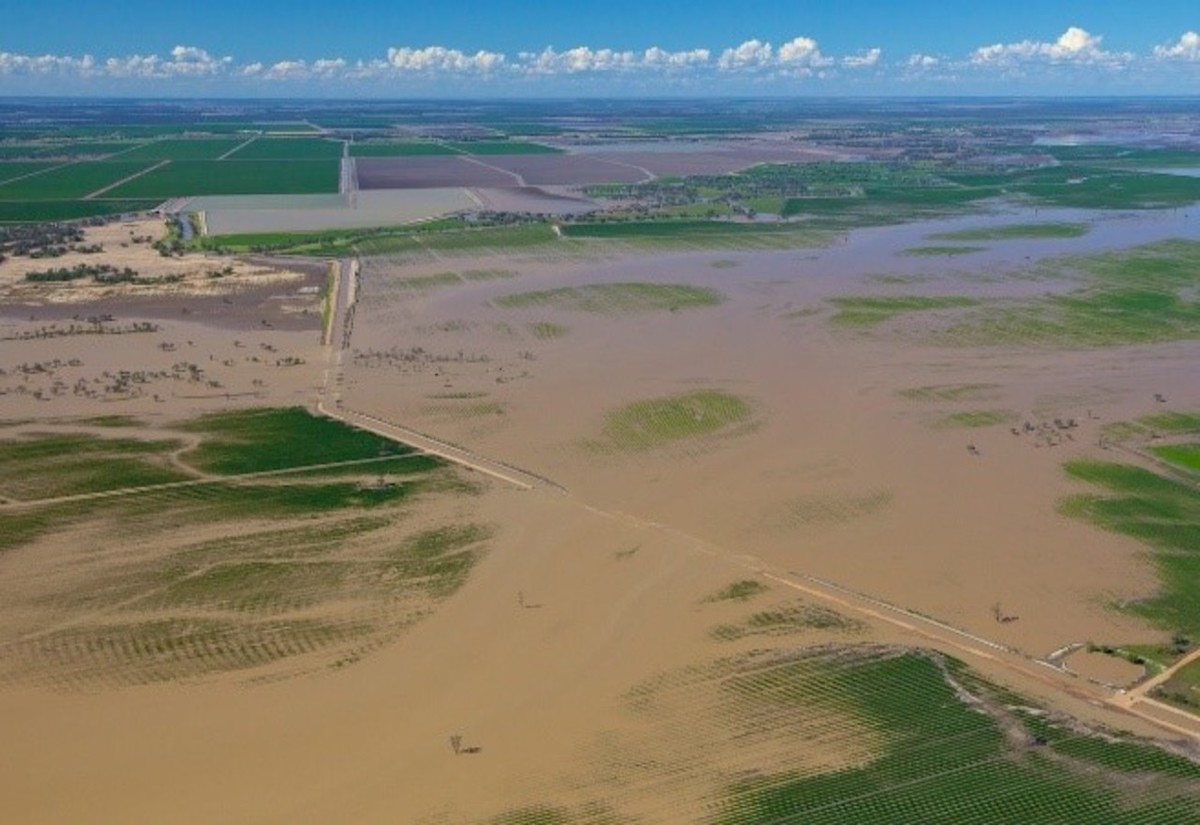Floodplain findings come as no surprise
Laura Williams
16 December 2021, 6:30 AM
 While the findings of the floodplain harvesting inquiry align with those of interest groups, concern follows how the inquiry committee suggests they arrive at the solution. (Image: Roy Butler)
While the findings of the floodplain harvesting inquiry align with those of interest groups, concern follows how the inquiry committee suggests they arrive at the solution. (Image: Roy Butler)Yesterday, December 15, the final report that would help steer the fate of the Murray-Darling Basin Plan was released, confirming what was already clear to both irrigators and environmentalists.
The floodplain harvesting inquiry, which investigated the legality of the practice, as well as how it can be licenced, regulated, metered and monitored sustainably, was finalised with a report featuring 25 recommendations and 14 findings surrounding the issue that has continually plagued the basin community.
Chair of the Select Committee Cate Faehrmann said that measures must be taken to control what are currently unsustainable processes, including an excess of licenses and a lack of enforcement around legislated caps.
“Therefore, changes need to be made in relation to measurement, illegal floodplain harvesting structures, water accounting rules and aspects of licence design,” Ms Faehrmann said.
Interest groups said that while the inquiry confirmed what they already knew, what happens next, now that the government is informed, is what they’re paying attention to.
For Lou Norton of Healthy Rivers Dubbo, that focus remains cast on the licensing of unapproved floodplain works across the Macquarie River, of which they claim to be sixty nine.
“If illegal, unapproved floodplain works were removed from the Macquarie Valley, the volume of floodplain harvesting licences issued would be reduced by about two thirds,” said Ms Norton.
“Floodplain harvesting always takes the first flows when a drought breaks, denying water to the Macquarie Marshes for a long time, and artificially extending the length of droughts,” she added.
While there is a mutual understanding of regulation that needs to take place in the industry, fears are sprouting that any action will be delayed by further government planning and process, despite existing modelling being ready for implementation.
NSW Irrigators’ Council CEO Claire Miller said that the inquiry failed to find any legitimate reason to further delay the reform.
“More than $56 million of federal and state money has been spent on rigorous modelling, analysis and ground-truthing. Further, the licensing framework will be regularly reviewed to adjust water take as needed, reflecting variables including climate change,” Ms Miller said.
Ms Miller noted that the committee appeared "confused" by recommending the establishment of an independent panel, which would duplicate the work that the Murray-Darling Basin Authority already does.
NSW Farmers President James Jackson said that taking steps forward to measure and monitor water use would be the only way to adapt to changes in seasonal conditions and climate.
“Uncertainty in natural resource regulation does not serve the environment or the economic or social wellbeing of the regions,” Mr Jackson said.
“It is an important step to ensure that all land owners have an equal opportunity to ensure their existing rights are protected and future rights to use their land free from altered water flows and reductions in available water are not compromised."
The final report was tabled yesterday, with its findings and recommendations to be considered by the government before issuing a response by Wednesday 15 June 2022.